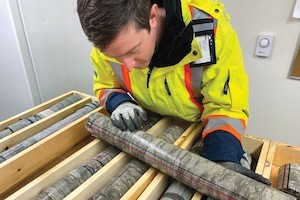Northern Ontario site selected for nuclear waste underground repository
Allison Jones, The Canadian Press
 TORONTO — A region in northern Ontario was chosen Thursday as the site to hold Canada's nuclear waste in a deep geological repository, a critical milestone in a $26-billion, decades-long project to bury millions of used fuel bundles underground.
TORONTO — A region in northern Ontario was chosen Thursday as the site to hold Canada's nuclear waste in a deep geological repository, a critical milestone in a $26-billion, decades-long project to bury millions of used fuel bundles underground.
The Nuclear Waste Management Organization, a non-profit body funded by the corporations that generate nuclear power and waste, announced that Ignace in northwestern Ontario will be the site, after both the town's council and Wabigoon Lake Ojibway Nation were willing to move forward.
Laurie Swami, president and CEO of the NWMO, said the organization will now start the regulatory process, which could take seven to 10 years. Construction is expected to take 10 years, with operations set to begin in the 2040s.
"I'm really excited that we've been able to select the site, that we have willing and informed communities that are willing to move forward with us into the next step of this," she said.
"We believe this is a very good place to locate our deep geologic repository, and in the next phase, we'll be going through the regulatory process, which will confirm our position on the safety of this site."
The site selection process began in 2010 with 22 potential locations and was eventually narrowed down to two finalists in Ontario. Both Ignace and Wabigoon Lake Ojibway Nation in northern Ontario decided to move ahead, while the "yes" side narrowly won in a referendum in the Municipality of South Bruce.
But nearby Saugeen Ojibway Nation had not made a decision, and the NWMO had a timeline of selecting a site by the end of this year.
"We've been working with Saugeen Ojibway Nation for many years, and despite our best efforts, we did not see a path forward where Saugeen would be in a position to determine their willingness in the short, probably the mid-term," Swami said.
Chief Clayton Wetelainen of Wabigoon Lake Ojibway Nation said his community's role as the potential host for Canada’s used nuclear fuel is one of the most important responsibilities of our time.
"We can not ignore this challenge and allow it to become a burden for future generations," he wrote in a statement.
The First Nation will ensure that its role as guardians of the land and water remains central to the decision-making process, Wetelainen and the council said, and the project can only continue if it can be proven to be built safely, with respect to the environment and in a way that protects Anishinaabe values.
Ignace Mayor Kim Baigrie said the town was the first to put its hand up to be considered as the host more than 14 years ago.
“Through a constructive process, with integrity, accountability and transparency as our guiding principles, this township learned, educated ourselves and became an integral component of today’s decision by the Nuclear Waste Management Organization," she wrote in a statement.
(C) The Canadian Press








